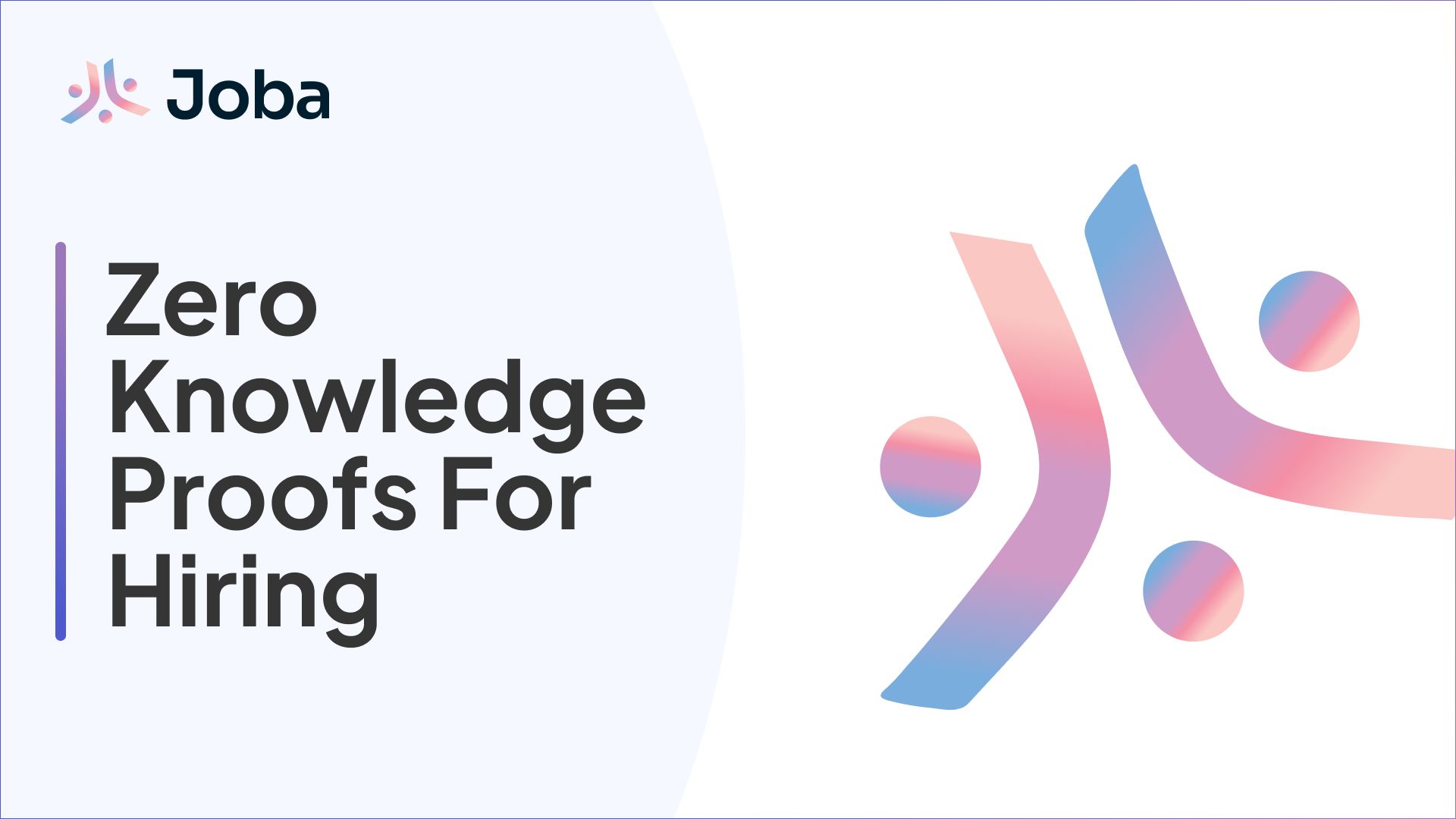What are Zero-Knowledge Proofs for Hiring?

In today's digital age, data privacy and security have become paramount concerns in various industries. This is especially true in the realm of hiring and talent acquisition, where sensitive information is exchanged daily. Employers need to ensure that the personal and confidential data of both candidates and the company remain secure. This is where zero-knowledge proofs come into play, offering a powerful solution to address these concerns. In this comprehensive article, we will explore the concept of zero-knowledge proofs for hiring, their significance, and how they are transforming the recruitment process.
1. Understanding Zero-Knowledge Proofs
Before delving into their application in hiring, let's grasp the concept of zero-knowledge proofs. At its core, a zero-knowledge proof is a cryptographic method that allows one party (the prover) to prove to another party (the verifier) that they possess certain information without revealing the information itself. This is achieved through a complex process where mathematical algorithms ensure the validity of the claim without disclosing the underlying data.
In the context of hiring, zero-knowledge proofs can be applied to verify specific claims made by candidates without exposing sensitive details. For example, a candidate can prove that they hold a valid degree without revealing the actual diploma or academic records.
2. Enhanced Data Privacy
One of the most significant advantages of implementing zero-knowledge proofs in hiring is the enhanced data privacy they offer. Traditional methods of background checks and verification often require sharing sensitive documents or data, increasing the risk of data breaches or misuse. Zero-knowledge proofs eliminate this risk by allowing candidates to validate their credentials or claims without disclosing the actual documents.
With data breaches becoming more prevalent, companies must take measures to protect not only their own data but also the personal information of candidates. Zero-knowledge proofs provide a robust solution to this challenge by allowing for verification without the need to exchange sensitive documents.
3. Streamlined Verification Process
Zero-knowledge proofs streamline the verification process in hiring. Candidates can swiftly and securely prove their qualifications, certifications, or work history without the need for time-consuming and sometimes invasive background checks. This expedites the recruitment process, benefiting both candidates and employers.
Traditional verification processes often involve contacting educational institutions, past employers, or certification authorities to validate claims made by candidates. This can be a time-consuming and resource-intensive process. With zero-knowledge proofs, candidates can provide cryptographic proof of their claims, reducing the need for extensive verification steps.
4. Eliminating Bias and Discrimination
Zero-knowledge proofs contribute to a more inclusive and equitable hiring process. Traditional methods may inadvertently introduce bias or discrimination based on factors like a candidate's name or educational institution. With zero-knowledge proofs, the focus shifts to the validation of qualifications, reducing the potential for bias.
By relying on cryptographic proof rather than personal identifiers, zero-knowledge proofs can help create a fairer hiring process. This is particularly important in today's diverse and inclusive work environments, where companies strive to eliminate biases and provide equal opportunities to all candidates.
5. Use Cases in Hiring
Zero-knowledge proofs can be applied in various aspects of the hiring process, including:
- Educational Credentials: Candidates can prove their academic qualifications without sharing transcripts or diplomas.
- Work Experience: Verification of past employment history can be done without revealing sensitive HR data.
- Identity Verification: Ensuring the identity of candidates without exposing personal identification information.
- Criminal Record Checks: Verifying the absence of a criminal record without disclosing specific legal details.
Zero-knowledge proofs can significantly enhance the hiring process by allowing for efficient and secure verification of critical information. This is particularly beneficial when hiring remote or international candidates, where traditional verification methods may be more challenging.
6. The Future of Hiring
As data privacy regulations continue to evolve, and individuals become more concerned about the security of their personal information, zero-knowledge proofs are poised to play an increasingly vital role in hiring. Companies that adopt these innovative methods demonstrate a commitment to data security and transparency, which can enhance their reputation among job seekers.
The future of hiring will likely involve a shift towards more secure, efficient, and equitable processes. Zero-knowledge proofs represent a significant step in this direction, aligning with the growing importance of data privacy and security in the digital age.
In an era where data privacy is paramount, zero-knowledge proofs emerge as a powerful tool for ensuring the security of hiring processes. They offer enhanced data privacy, streamlined verification, and the potential to eliminate bias. As the landscape of hiring continues to evolve, integrating zero-knowledge proofs can be a strategic move for companies aiming to attract top talent while safeguarding sensitive information.
In conclusion, zero-knowledge proofs are not just a technological advancement; they represent a fundamental shift in how we approach hiring, prioritizing security and transparency for all parties involved.
By leveraging zero-knowledge proofs, companies can move towards a future where hiring processes are not only efficient but also more secure and equitable.
Ready to revolutionize your hiring process with the power of zero-knowledge proofs? Join the Joba Network today and experience the future of secure and efficient recruitment. Your next top talent is just a click away!
Frequently asked questions
No, some industries like health care and manufacturing require physical presence. But many fields, especially in tech and marketing, are well-suited for remote work.
Not necessarily. Many remote jobs offer competitive salaries and benefits.
There are various job boards dedicated to remote work, such as We Work Remotely and Remote OK.
The key is to set a routine, create a dedicated workspace, and use productivity tools to stay on track.
Tools like Slack, Zoom, and Asana are invaluable for remote work, aiding in communication and project management.




